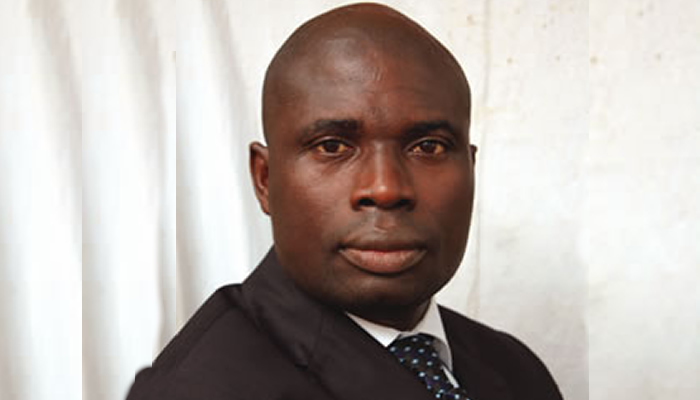
The International Editor of BBC News, Jeremy Bowen, comments on his field experience of late. He has covered troubled spots and interviewed heads of authoritarian regimes, but when asked questions about Iraq where chaos eventually followed the departure of its former strongman ruler Bowen’s response surprised me. He states that the invasion of Iraq by Western nations back in 2003 had catastrophic consequences. True, including the rise of ISIS that ravaged that part of the world for a period and still remains a threat.
Now, Bowen’s submission on Iraq isn’t the first of such. Politicians, humanitarian field officers, diplomats, and media personalities in the West have said the same. They blame the West for what is happening in Afghanistan and other parts of the world as well. In the recent past, I responded to a few of such calls on this page, including one made by the British Defence Secretary, Ben Wallace, regarding Afghanistan. My view at the time was that when leaders crashed their nations as the Afghanistan leadership, as well as the former strongman ruler in Iraq, did, blaming foreigners amounted to placing the cart before the horse, and in any case, their submission constituted a potential threat to the peace of my nation, Nigeria. Why? Such blame placed on the West promotes the mentality that citizens can be irresponsible in the manner they treat their nation, and when they crash it they can blame foreigners at the slightest opportunity or expect foreigners to fix every mess.
I had argued further at the time that there was something inconsistent, and somewhat superficial in the arguments of Westerners who blamed the West for Afghanistan or any other such nation. Reason? Leaders and other citizens in Western nations do everything possible to remain the rule of law-compliant; they monitor the system closely and punish bad behaviours such that their nation remains orderly, and transparent, and ensures government officials are responsible and accountable. They do these to ensure their nations don’t become lawless or crash. This doesn’t always happen in nations that have crashed. Here, leaders and other citizens first lay the foundation for the destruction of their system. Things have always become rotten before the West ever had reasons to intervene, yet the West is blamed for it. I asked in the past if Western commentators cultivated the habit of blaming the West because it was politically safe and correct to do so considering freedom of expression and freedom of the press in their nations.
It’s not the first time I make the observation on this page that we sometimes leave the root of a matter to deal with its manifestations, the follow-up actions. In Iraq, the invasion carried out by the West was a follow-up action. It was never the root of the problem. The problem was the strongman ruler, Saddam Hussein, who did all he did and brought his nation to 2003. I have pointed to the same angle with regard to Libya where a strongman, Muammar Gaddafi, ruled for decades and when his people challenged him he began to murder them. That prompted the West to come to the aid of the people and declare a no-fly zone. That action has since been blamed for the chaos in which Libya now finds itself. To some commentators, the West was the cause of all the chaos in Libya. But you ask the question: Which came first, which laid the foundation – rule by a strongman who became murderous to remain in power or the West that stepped in to stop him?
I have stated on this page that nothing that a strongman ruler builds will endure. There’s only one inevitable consequence of his stay in power – chaos, and in it everything he builds will become ruins. Look across Africa wherever one man wanted to rule forever. In Cote d’Ivoire where Houphuet Boigny ruled till he died in office, war followed. In Sudan where one man ruled till his people took to the streets and forced him out, chaos has followed. In Libya where Gaddafi believed he was the emperor of Africa. In Zimbabwe, it took the intervention of the military to save that nation from the looming chaos that might have attended the decisions of a ruler who didn’t mind dying in office.
There are other African nations where rulers are changing the provisions of their constitutions to rule forever. Such men are being praised for their ‘achievements.’ But, like Libya, the ‘achievements’ of strongmen rulers will go up in flames because they are also laying the foundation for the chaos that must ensue when they are no longer around. The certainty of this kind of end to a strongman ruler cannot be in doubt and I listed the reasons in the past. In case we cite nations where strongmen rule and we call it stability, it’s because citizens haven’t decided they have had enough of the nonsense where one man is projected as the only saviour the nation has. When citizens in Egypt decided they had had enough the other time under a certain Hosni Mubarak we saw what happened. What happened in the form of Arab Springs that rejected strongmen rulers across North Africa will repeat itself when citizens are tired. It’s the lot of every nation where some plan to rule forever.
It’s not in doubt what citizens will do since we know change is the only constant phenomenon around. The strongman ruler is by my own reading a threat to the stability of his nation and the reasons are simple. He rules forever in a situation where his fellow citizens aspire to occupy the same sit. He blocks their chances and those ones will one day support any possible change that will ensure they fulfil their ambition. The strongman ruler shall yet muzzle citizens in their thousands, many of them imprisoned, sent into exile or to early graves. This is a constant feature in nations where strongmen rule forever. Someone spoke to me about Rwanda where one man has changed the constitution and continues in office. He describes to me how dissenting voices are being picked up every day and now people are afraid to say anything contrary to the view of the man in office.
Another person discusses with me the situation in Cameroon where another strongman ruler is holding sway. The person says holding a government position has been made almost hereditary. The cabinet minister whom her parents, visited when she was about four years old is the same minister she now sits shoulder-to-shoulder with at international meetings. In the event, new generations of Cameroonians aren’t trained to take over because even the strongman ruler himself trains no successors and he maintains only a core of those who are loyal to him in official positions. This situation leaves the majority of citizens disgruntled and they may support any form of change. Such has taken the form of a military coup in some African nations of late. When military boys join the fray the matter is made worse as we see in Sudan.
Also, once rulers decide to remain in office forever they take decisions that reflect their mentality. Little or no debate is allowed. Errors are inevitable. Externally, they make more enemies than friends and their few friends tend to be leaders that are authoritarian like themselves. These things are reflected in their actions on the world stage. Would Iraq have invaded other nations if it wasn’t under a strongman ruler? This question is based on studies which assert that democratically elected governments are less likely to go to war, the kind of war Hussein waged. This same man oppressed Iraqi tribesmen that disagreed with him. When he was taken out many tribes and people he oppressed celebrated.
Note that Hussein’s authoritarian tendencies influenced his decision to invade neighbours. He probably suspected Kuwait would be defended by the West yet he invaded, something a democratic government open to debate and sound advice would have been dissuaded from doing. His strong authoritarian disposition was the backdrop to the US/UK leaders’ claim that Hussein had nuclear weapons. His actions made him to be perceived by many nations as a threat to the world. The strongman ruler of Iraq laid the foundation internally and externally for how his nation crashed, not the West.





